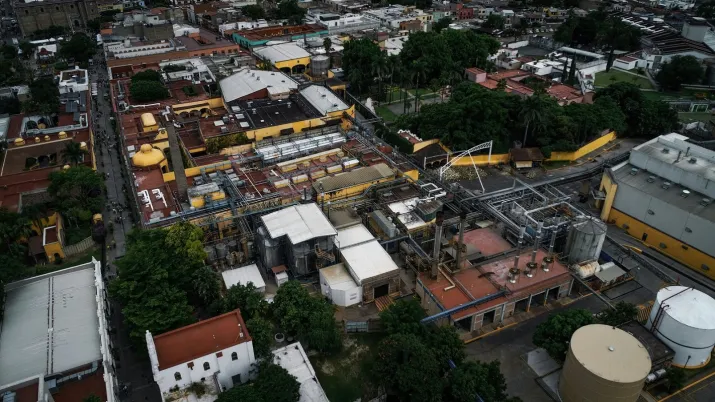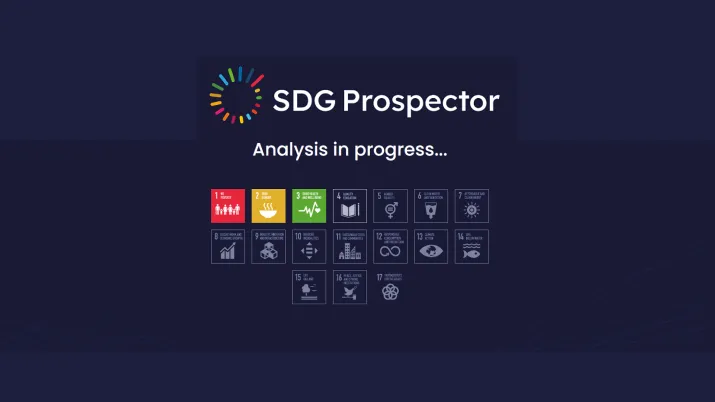Share the page
Mapping digital commons in sub-Saharan Africa

-
Project start date
-
2022Status
Completed
-
Project end date
-
2022
-
AFD financing amount
-
21000
-
Country and region
-
Location
-
Sub-Saharan Africa
-
Research program
Digital technology has gained a major place in development strategies in sub-Saharan Africa. Entrepreneurship as a common is a phenomenon of scale but that is still little known. The study made it possible to map its various forms and analyze the communities mobilized, the underlying economic models and the social issues they address.
Context
As part of its Digital Transition strategy (2021-2025), AFD has made three commitments:
- Offer everyone access to the Internet and its services;
- Put online essential services for each strategic transition;
- Putting the creation of innovative companies at the service of development.
In response, one of the three identified levers is to foster the governance of digital resources in the form of “common”. Digital commons refer to communities of rights holders who create and maintain, on a collaborative basis, databases, computer codes, digital tools, shared knowledge, literary and artistic creations. What we mean by “sub-Saharan African commons” refers to digital resources whose user or contributor communities are located in sub-Saharan Africa.
This research project is part of AFD’s “Commons” research signature programme.
Goal
The aim of the study was to identify the digital commons in sub-Saharan Africa, so as to produce a representative – if not exhaustive – map. The objective was to report on the extent of the phenomenon of digital commons in sub-Saharan Africa, by distinctly analyzing common content, data, software and common hardware shared or open plans and designs. It analysed how digital commons contribute to the achievement of the Sustainable Development Goals (SDGs) and the challenges they face.
The service also analysed in more depth a selection of ten commons (African Storybook; AfricArXiv; AFRINIC; Energypedia; Grassroots Economics; Open MRS; Pamoja-Net; Ushahidi; WaziHub; Wikimedia Côte d'Ivoire), chosen for their representative nature, and proposed avenues for support by AFD.
Finally, the objective of the service was to create a community of interest around these issues through a collaborative approach.
Method
The study was carried out in three phases:
- Collecting digital commons experiences in sub-Saharan Africa through a launch webinar and a collaborative platform;
- Research and census of digital commons at work or mobilized in sub-Saharan Africa through survey work. The research method used was mainly qualitative, through semi-directive interviews with identified African partners: common bearers, contributors, users and facilitators (public actors, private actors). Ten experiments were the subject of more in-depth analyses according to a defined maintenance framework.
- Presentation of research findings.
Results
The study led to three main results:
- Production of an illustrated mapping and a proposal for taxonomy of digital commons in sub-Saharan Africa, following a literature search, workshops and interviews. It identifies 89 examples of digital commons with communities in sub-Saharan Africa. This collaborative mapping is available online (in French).
- Construction of a community (researchers, practitioners of the commons, institutional) interested in this subject, through the establishment of a collaborative approach.
- Analysis of illustrative cases of issues related to commons and opportunities for AFD to support them. These analyses gave rise to ten descriptive sheets of these commons.
Find out more about digital commons in Africa in the dedicated chapter of The Commons. Drivers of change and opportunities for Africa.
Lessons learned
Five working hypotheses have been formulated:
- Hypothesis 1: African communities are very diverse and rarely identify themselves as commons.
- Hypothesis 2: Sub-Saharan African communities that participate in the development of commons are based first of all on a few committed citizens.
- Hypothesis 3: The sustainability of the identified commons depends heavily on their ability to mobilize international support.
- Hypothesis 4: The positive impact of access to global digital commons in sub-Saharan Africa is increasingly recognised.
- Hypothesis 5: The digital commons of sub-Saharan Africa participate in citizen struggles to decolonize knowledge and culture and support the local creation of value.
Read also: Digital Commons and Entrepreneurship: Alternative or Complementary Approaches?
Contacts
-
Stéphanie LEYRONAS
Research Officer
-
Jan KREWER
Research Fellow (CIFRE PhD Contract)
Discover other research projects
Digital labour platforms in Buenos Aires: Working conditions and gender inequality
Completed
2019 - 2022



